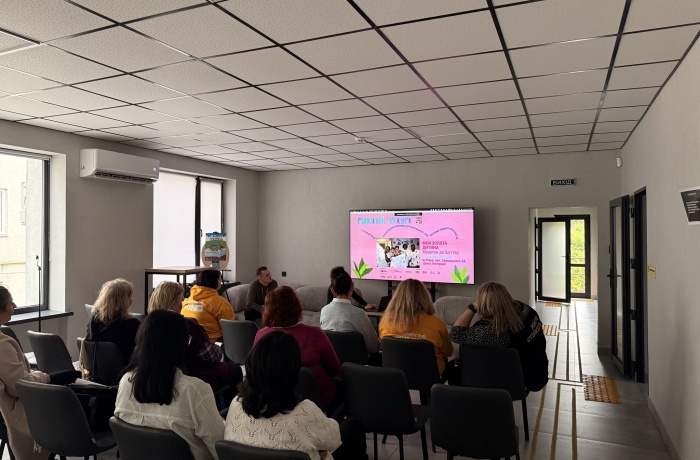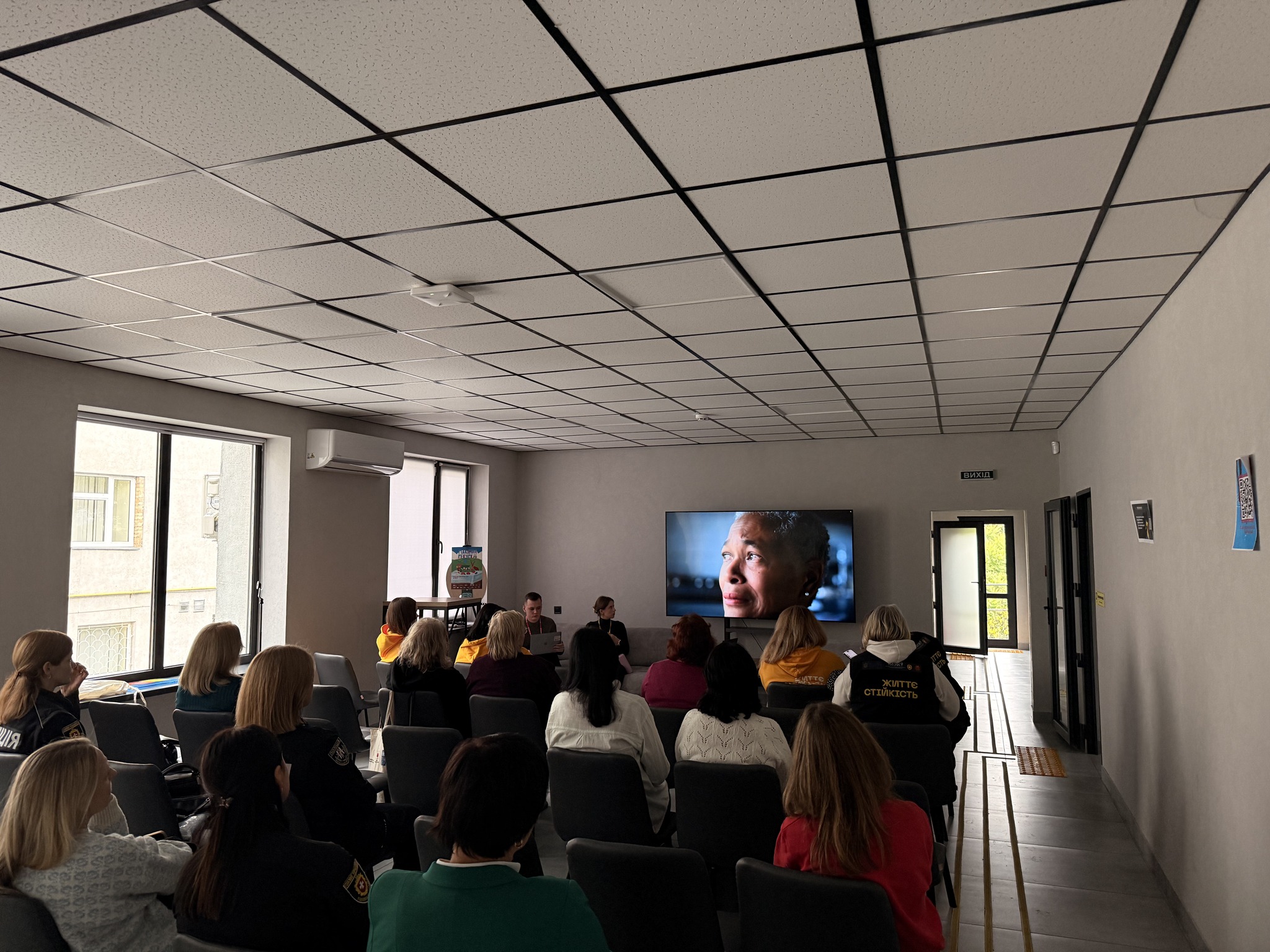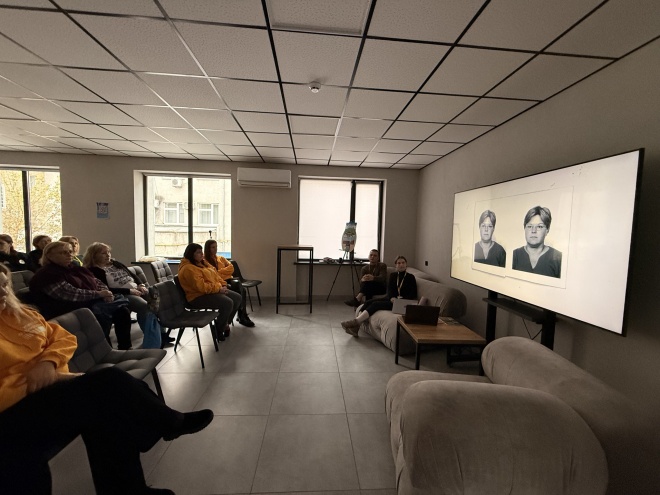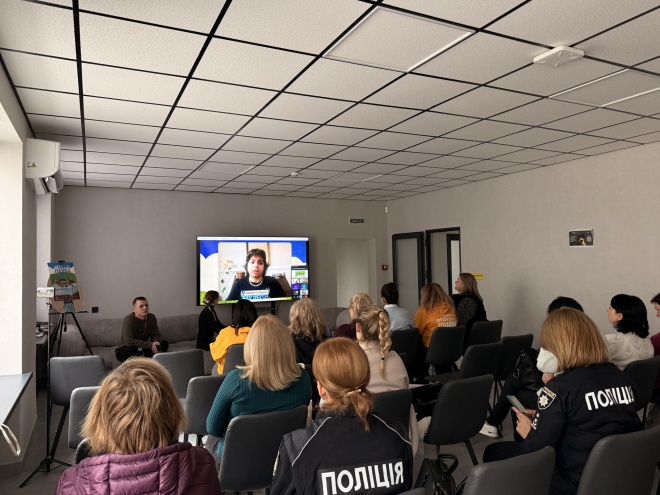Film screening in Rivne: How documentary cinema helps us talk about supporting the survivors of war crimes
Film screening in Rivne: How documentary cinema helps us talk about supporting the survivors of war crimes

On 10 October 2025, the 22nd Travelling Docudays UA International Human Rights Documentary Film Festival began in Rivne. The first screening in the city was the moving film My Sweet Child by Dutch director Maarten De Schutter, which opened a conversation about memory, loss, and recovery — both personal and social.

The event took place at the Integration Centre, which for several years has served as a space of support for internally displaced persons and the Rivne community. Among the audience were representatives of civil society organisations, psychologists from Resilience Centres, law enforcement officers, social managers and activists working with people affected by the war.
On memory and dignity
The film My Sweet Child tells the story of the director’s mother, a human rights defender and activist advocating for the rights of people living with HIV. She was killed when the russian military forces shot down Flight MH17 in 2014.
The film is not only a personal confession but also a reflection on the universal experience of loss, on love that endures even after death. Cinema becomes both an act of remembrance and an act of resistance against oblivion, which resonates especially deeply today as Ukraine faces large-scale crimes against humanity.
“Supporting survivors of war crimes committed by the russian armed forces is an essential component in restoring violated rights,” emphasised the discussion moderator Vladyslav Yehorov, director of the Rivne Human Rights Group. Photo: screening of the film My Sweet Child
Photo: screening of the film My Sweet Child
Cinema as a space of support
The screening was followed by an expert discussion focusing on how society can effectively support victims of war crimes and crimes against humanity.
The discussion featured:
-
Olesia Myronets-Matushchenko, Head of the IDP Council under the Rivne Regional Military Administration;
-
Larysa Ivaniuk, representative of the Coordination Centre for the Support of Victims and Witnesses of the Office of the Prosecutor General;
-
Olena Khomych, Head of NGO Integration Centre and social manager at the Rivne Resilience Centre.
The participants emphasised that documentary cinema can serve not only as an artistic medium but also as a therapeutic space: it enables people to articulate trauma, find shared meanings, and build dialogue between citizens, government institutions, and the survivors.
“Survivors are not always prepared to speak, and sometimes they do not even realise they have become victims of a war crime. Our task is to support these people, inform them, and help restore their rights,” noted Olesia Myronets-Matushchenko.
Voices that must be heard
During the discussion, participants shared their own experiences of displacement, loss, and recovery. For many, the film emotionally echoed their own stories: the loss of home, loved ones, stability.
“This film shows that even if they are far from Ukraine, people feel our pain. The war has affected not only us but the entire world,” noted one of the participants.
Such events are not only cultural but also social initiatives that create an environment of support where everyone can find understanding and feel that their voice matters.
When cinema heals
The organisers of the event emphasised that Docudays UA is not just a human rights film festival, but a platform for dialogue, reflection, and healing through cinema. Photo: discussion of the film with director Maarten De Schutter
Photo: discussion of the film with director Maarten De Schutter
Films such as My Sweet Child help society comprehend the tragedies of war not only through facts but also through empathy — something that is becoming one of the rarest resources today.
“Humanity is what unites us despite pain and loss. And cinema gives us the language to speak about it,” concluded Vladyslav Yehorov.
The 22nd Travelling Docudays UA is held with the financial support of the European Union, the Embassy of Sweden in Ukraine, and International Media Support. The opinions, conclusions or recommendations do not necessarily correspond to the views of the European Union, the governments or charities of these countries. Responsibility for the content of the publication lies solely on its authors.












